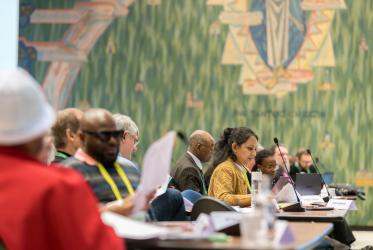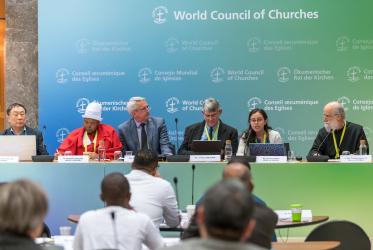Displaying 1 - 20 of 1717
22 April 2024
WCC expresses deep concern for human rights in Haiti
28 March 2024
Words of steadfastness ring from the rubble
21 March 2024
WCC at the Commission on the Status of Women
09 - 22 March 2024








